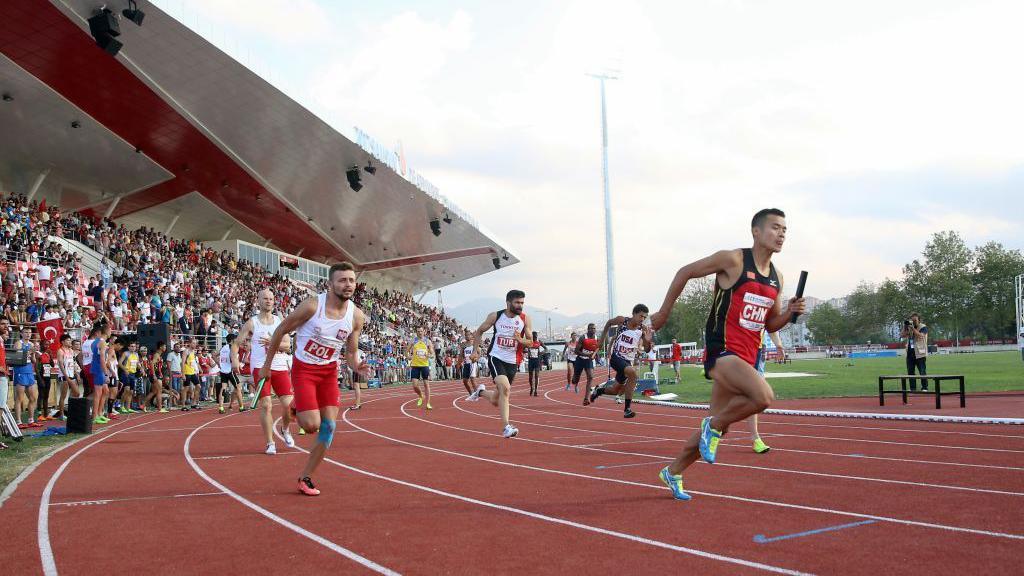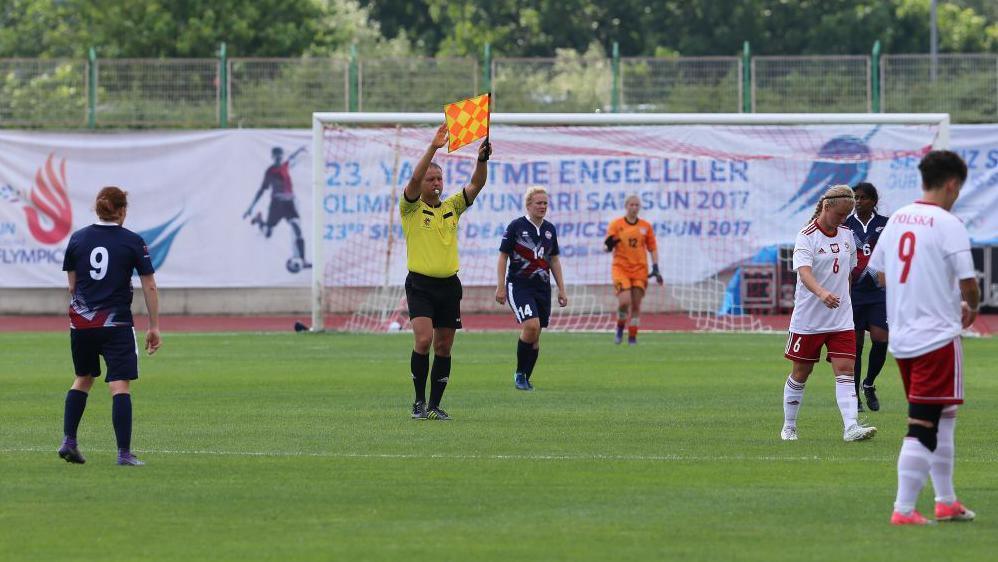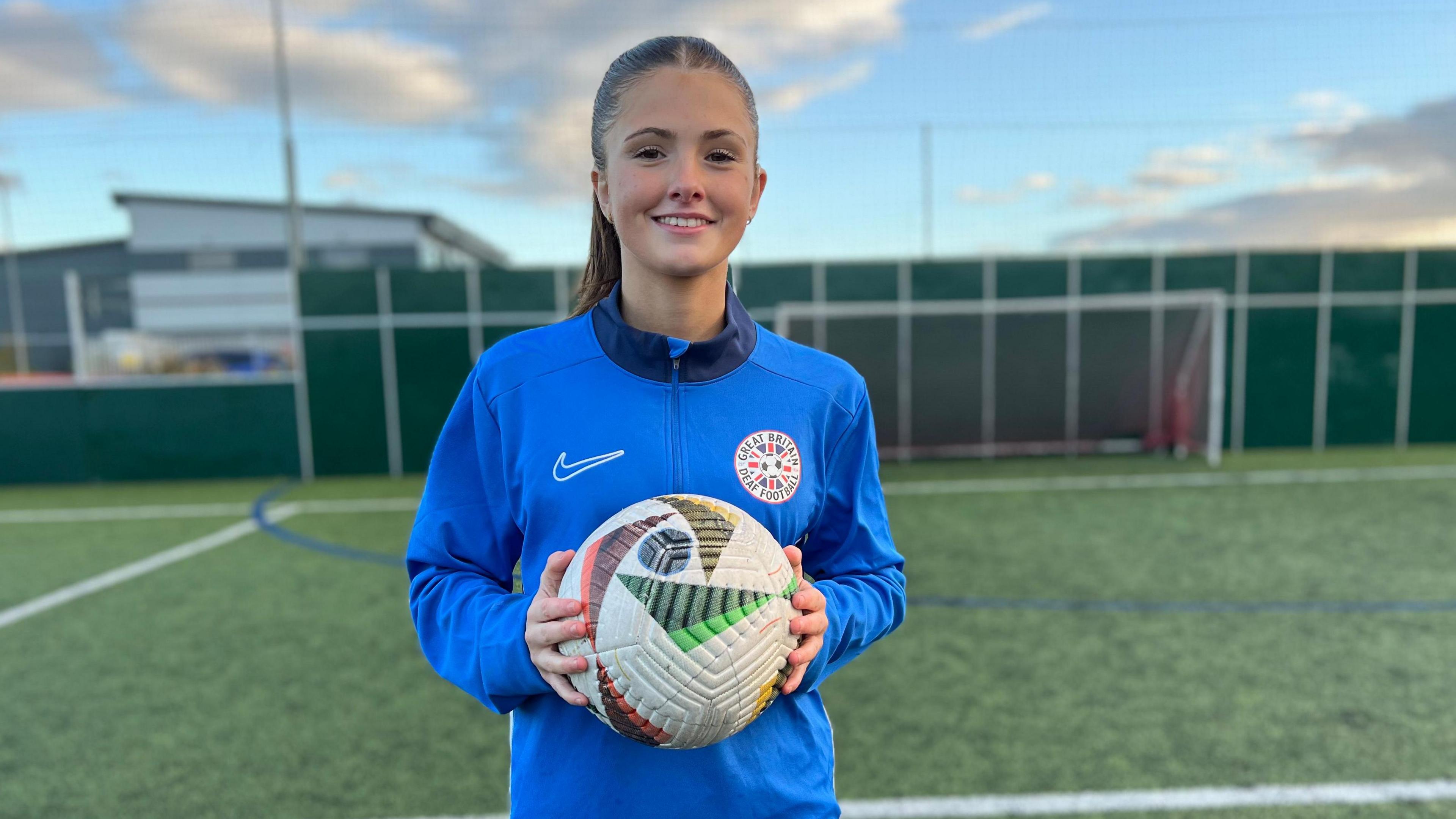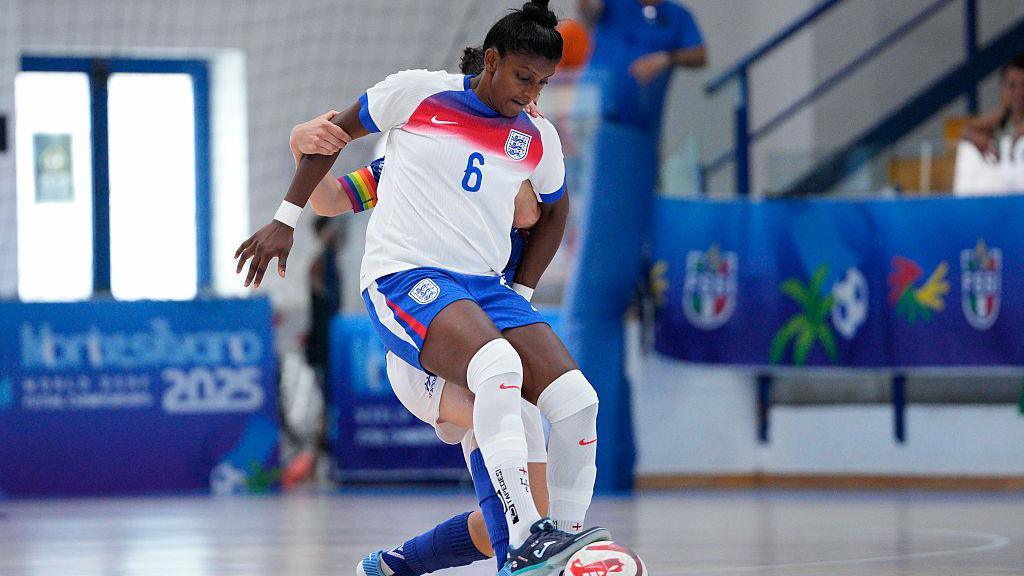What is the Deaflympics?

- Published
The Deaflympics is an international multi-sports event for deaf athletes that takes place every four years.
It is different to the Paralympics, which sees athletes with a wider range of disability classifications participate.
There is both a summer and a winter version, with Japan's capital Tokyo hosting the 100th anniversary Games between 15-26 November 2025.
Twenty-one sports are on the programme in Tokyo - including cycling, football and athletics.
Great Britain has been participating at the Deaflympics since 1924, but did not send a delegation to compete at the last competition in 2022 after it was rearranged because of the Covid-19 pandemic.
Get in touch
Send us your questions
What makes it different and who can qualify?

DeaflympicsGB athletes will be competing in seven sports; athletics, football, golf, swimming, cycling, shooting and tennis
The Games are organised by deaf people for deaf people.
During the competition, visual signals are used to replace auditory cues.
In athletics, starting guns are replaced with flashing lights. In football, the referees' whistle is replaced with flag signals.
In order to qualify, athletes must have a hearing loss of at least 55 dB in their better ear to qualify.
Hearing aids, cochlear implants, and other similar devices are not allowed during competition, to ensure fair competition.
Why are they separate to the Paralympics?

The referee in football uses a flag instead of whistle to signal for fouls
The Deaflympics was established 24 years before the Paralympics and is the second oldest multi-sport festival in the world.
It was originally known as the International Silent Games.
It also differs from other International Olympic Committee-sanctioned events because they are organised and operated exclusively by deaf people.
In Paralympic sports, athletes are grouped by the degree of activity limitation caused by their impairment. Athletes are then classified to minimise the impact of impairment on sport performance, and classification must be sport specific.
Do deaf competitors take part in the Paralympics?
There are no Paralympic categories for athletes who are solely deaf.
Deaf athletes can only compete at the Games if they have another eligible Paralympic disability.
The International Deaf Sports Committee explains that: "Many deaf people do not consider themselves disabled, particularly in physical or intellectual ability."
"We consider ourselves to be part of a cultural and linguistic minority," the body added.
Where does funding come from?

Sophie Dacombe will be attending her first Deaflympics but called the funding situation "unfair"
The Department for Culture, Media and Sport said Sport England was currently providing £1.27m in funding for UK Deaf Sport through to 2027.
However, the government does not directly fund athletes competing at the Deaflympics via UK Sport as their remit is Olympic and Paralympic athletes only.
UK Deaf Sport chief executive Chris Ratcliffe told MPs it was "shameful" athletes were missing out on funding.
The Great Britain team has been asked to raise £4,000 each to fund the £500,000 cost of sending 100 athletes and support staff to Tokyo.
Teenager Sophie Dacombe, who is in the women's football squad competing at Tokyo, called the funding situation "unfair".
"We should get the same opportunities that other people do when you're representing your country," she said.
Fellow footballer Lucindha Lawson told BBC Sport's Sally Hurst: "If I'm honest, I feel a little bit embarrassed asking people for the funding, because it's my third time as well, so it's a bit difficult.
"I'm disappointed that the government won't support and fund it. I don't want to worry about money."
This article is the latest from BBC Sport's Ask Me Anything team.

Lucindha Lawson has played for Great Britain at several Deaflympics
What is Ask Me Anything?
Ask Me Anything is a service dedicated to answering your questions.
We want to reward your time by telling you things you do not know and reminding you of things you do.
The team will find out everything you need to know and be able to call upon a network of contacts including our experts and pundits.
We will be answering your questions from the heart of the BBC Sport newsroom, and going behind the scenes at some of the world's biggest sporting events.
Our coverage will span the BBC Sport website, app, social media and YouTube accounts, plus BBC TV and radio.